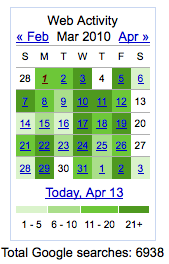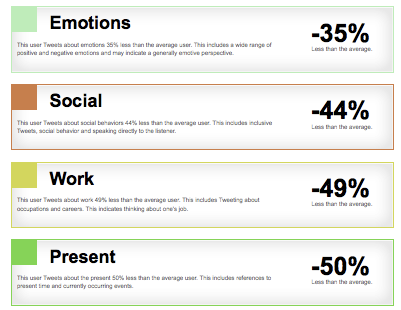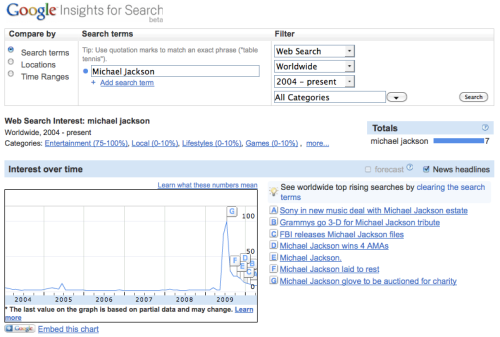 One search query on its own might actually not reveal too much information about a user. If you however, keep logging the queries from one particular user one might very soon be able to gain interesting insights. At some point early this year Google extended its ‘personalized search’ function onto all users, not matter if they were logged into any Google service or not (explanation found >>here<<).
One search query on its own might actually not reveal too much information about a user. If you however, keep logging the queries from one particular user one might very soon be able to gain interesting insights. At some point early this year Google extended its ‘personalized search’ function onto all users, not matter if they were logged into any Google service or not (explanation found >>here<<).
I was first confronted with this topic at the Suma e.v. conference in Berlin 2007. Hendrik Speck (a indeed humble man who even has a ‘My Quotes’ section on his website) mentioned in his speech search engine log files and talked in detail about how much information search engines could gain out of analysing them. In the example provided by Speck he talked -as far as I remember about an overweight, sick old lady who had some kind of fixation on cats. I didn’t really like the example and labelled the whole idea as ‘Google-Bashing‘.
My next encounter with this topic was when I was playing around with the Google Dashboard and was surprised to see that how precisely Google kept track of what I did and was even kind enough to tell me on which days I had been lazy, not doing much research for my blog or my thesis.
.
Then, last week I stumbled across a ‘cute’ YouTube-video, on the German Basic Thinking Blog, telling a romantic story, just by showing the queries a user had typed in.
.
Cute, as I’ve said, right? But… let’s take the idea a bit further:
I have repeatedly reported lengthy a service called TweetPsych which allows users to create kind of an psychological profile of any twitter feed, analysing the language used, the topics covered, the frequency of the posts, etc… The first worrying thing about this service is, that it works quite well. The second worrying thing is the idea of spreading this idea from a person’s twitter feed, which he deliberately had decided to publish freely on the internet, to a users search queries. Doing this we would be able not only to analyse a person’s interests but also its mood and even living habits.
.
Most of you will now say, yes that’s what Google (Google Insight) does anyway. True. But the difference is that Google, at least that’s what they’ve communicated only do this on a large scale.
.
Doing the same with just a single user takes the whole thing to a completely new level. I am not saying this because I am just another privacy-prayer hoping to get ‘street cred‘ for his words but to rephrase an idea I’ve heard from THE Austrian privacy activist (Hans Gerhard Zeger). [I know this idea isn’t entirely new, but I do think its worth being repeated many, many times…]
.
If data/information about everybody is available, authorities will start searching the data for unusual patterns to be able to investigate or even predict potentially malicious behaviour. So, the second a user types in ‘uncommon’ queries, he/she thus would be under suspicion. And here comes the point; under such circumstances, the whole principle of “presumption of innocence” (ei incumbit probatio qui dicit, non qui negat) is actually turned over. Then the authority won’t have to proof that the user has done anything wrong, but the user would be under the obligation to prove that he/she hasn’t.
.
I guess, nobody is feeling comfortable about being tracked/logged. At the same time we all appreciate the benefits of this technique. So as always a compromise has to be found as stubborn search engine bashing will just blur the whole situation and allow competitors to use the confusion and find loopholes to put things into practise, big corporations are still struggling to be allowed. Example? While some 70 year old Austrian even attacked an Google Streeview car last week with a pick-axe, nobody seems to care that an Austrian company (Herold Straßentour) has already recorded most of Vienna’s inner city, using pretty much the same technique. So shall Google be punished for at least openly speaking about their plans while others ‘just do it‘?







I absolutely loved your post. This is so funny and oh so true.
You do know what you’re doing, so keep at it.
Thank you!
Victor.
Google saves the preference of each user what he searched and when u do research u get fast results. Its totally depends upon what kind of information user required from Search Engines.
Yeah google saves the searching logs for each user. It shows the difference of result each time you search from different system with same keyword.